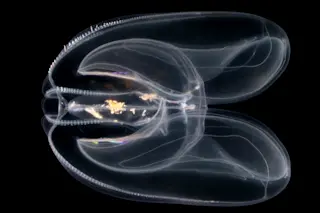Friday saw the release of two science-centered films: the medical drama "Extraordinary Measures" opened around the country, while the British-made Charles Darwin biopic "Creation" finally found a U.S. distributor and began limited showings on this side of the pond. Starring Brendan Fraser and Harrison Ford, "Extraordinary Measures" tells the Hollywood-ized true story of researchers racing to find a cure for Pompe disease, a genetic affliction affecting fewer than 10,000 people in the world. Two of those people, however, are the children of John Crowley, Fraser's character.
"The movie is a great exposure for a rare genetic disease," said Duke University School of Medicine's Priya Kishnani, who studies Pompe and participated in much of the research that led to the first and only approved treatment for the disease.... "I would have never thought in my lifetime, a disease that I'm so passionate about would make it into mainstream Hollywood cinema" [The ...













